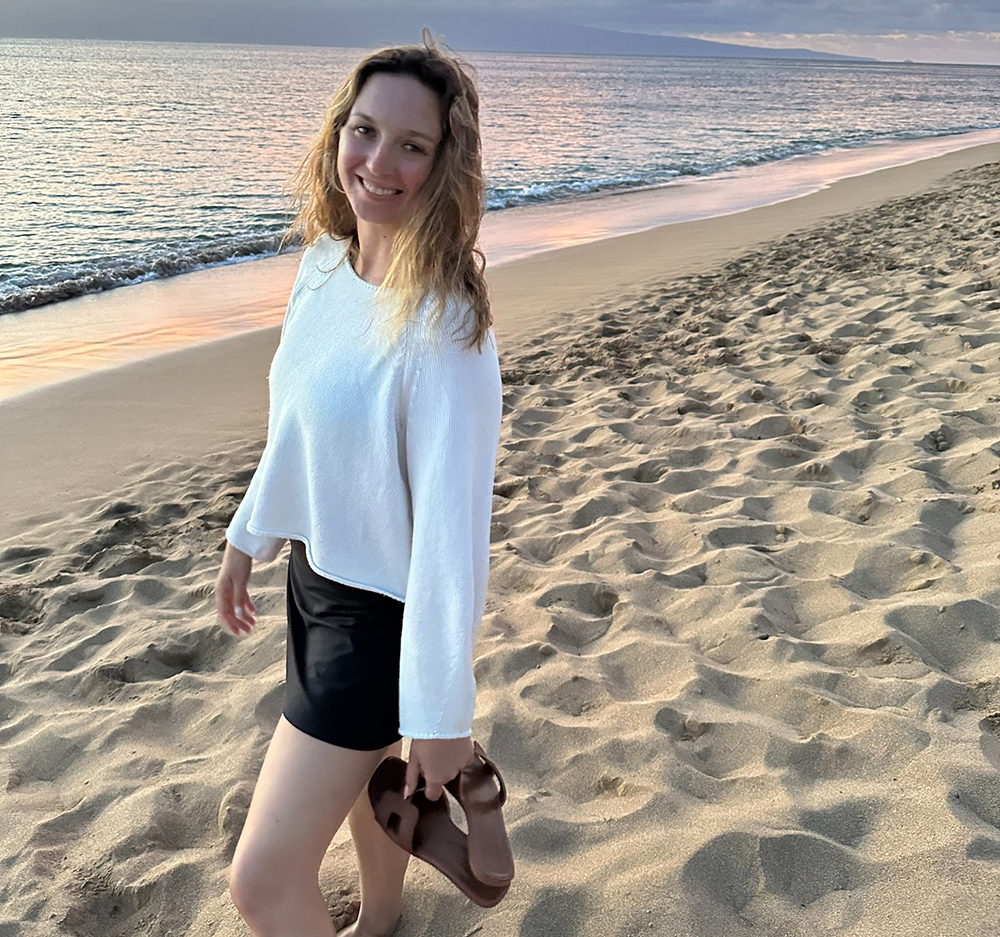
Evelyn Schaedel thought Texas was making her feel lightheaded. She had started feeling dizzy shortly after relocating there from the East Coast, and she assumed it was due to the heat and the motion of the ever-present ceiling fans.
"I thought I was just adjusting, that I’d been on my screens too much," Evelyn recalls.
A doctor initially diagnosed her with vertigo and prescribed an antihistamine, but the dizziness persisted. She also developed tinnitus, which sounded like ocean waves in her ear.
Doctors ordered an MRI, and to everyone’s surprise the scan revealed a colloid cyst — a fluid-filled mass in the third ventricle of the brain. Colloid cysts are very rare, occurring in only about three people per million, and although they are not cancerous they can cause symptoms like Evelyn’s. The larger danger, though, is that the cyst has the potential to obstruct the normal fluid pathways of the brain. In extremely rare cases this can cause sudden deterioration and even death. In the past, patients have had to choose between the known risks of open surgery to remove the cyst, or the low (but terrifying) risk of sudden death.
Following her diagnosis, Evelyn joined a Facebook group for individuals with colloid cysts, where she heard about Dr. Mark Souweidane of Weill Cornell Medicine Neurological Surgery. Dr. Souweidane is a pioneer in the endoscopic removal of colloid cysts, a minimally invasive approach that has changed the risk-benefit equation for patients. With the risk of surgery greatly reduced, patients who undergo endoscopic removal have a better chance of returning to their previous lives, where they can live without the fear of sudden death.
Watch this video about Dr. Souweidane and the endoscopic surgical technique he has pioneered for colloid cysts:
When even her neurosurgeon in Texas advised her to consult with Dr. Souweidane, Evelyn made the call. She contacted Dr. Souweidane’s office in August 2023 and got an immediate response.
"Our patients put their lives in our hands, and we take that seriously," Dr. Souweidane says. "Colloid cysts were once considered too dangerous to reach with open surgery, but the arrival of the endoscope completely changed the game. The endoscopic approach makes opening up the skull and risking those complications unnecessary. Removing the cyst endoscopically involves making one small entry hole, navigating directly to the cyst, and eliminating it with small surgical tools."
Evelyn says she received top-notch care from start to finish. Dr. Souweidane and his team were there every step of the way, patiently answering all her questions about what to expect.
"Everyone listened, everyone addressed the concerns and didn't beat around the bush," she says.
Evelyn’s surgery went well, and a recent scan showed no signs of regrowth. She reports no side effects from the surgery, and she has resumed her normal activities. She is grateful for the support she received and is optimistic about her future health.